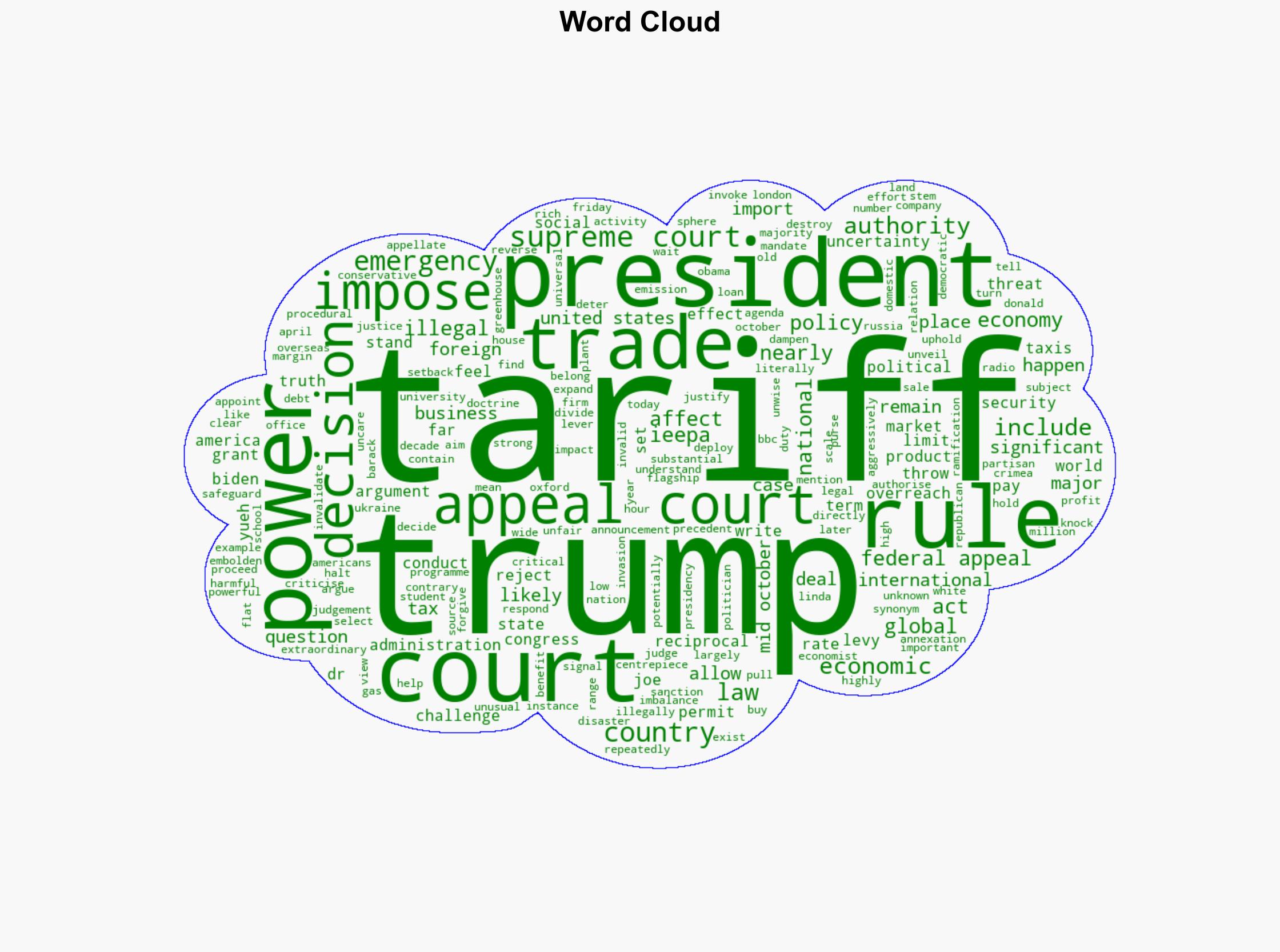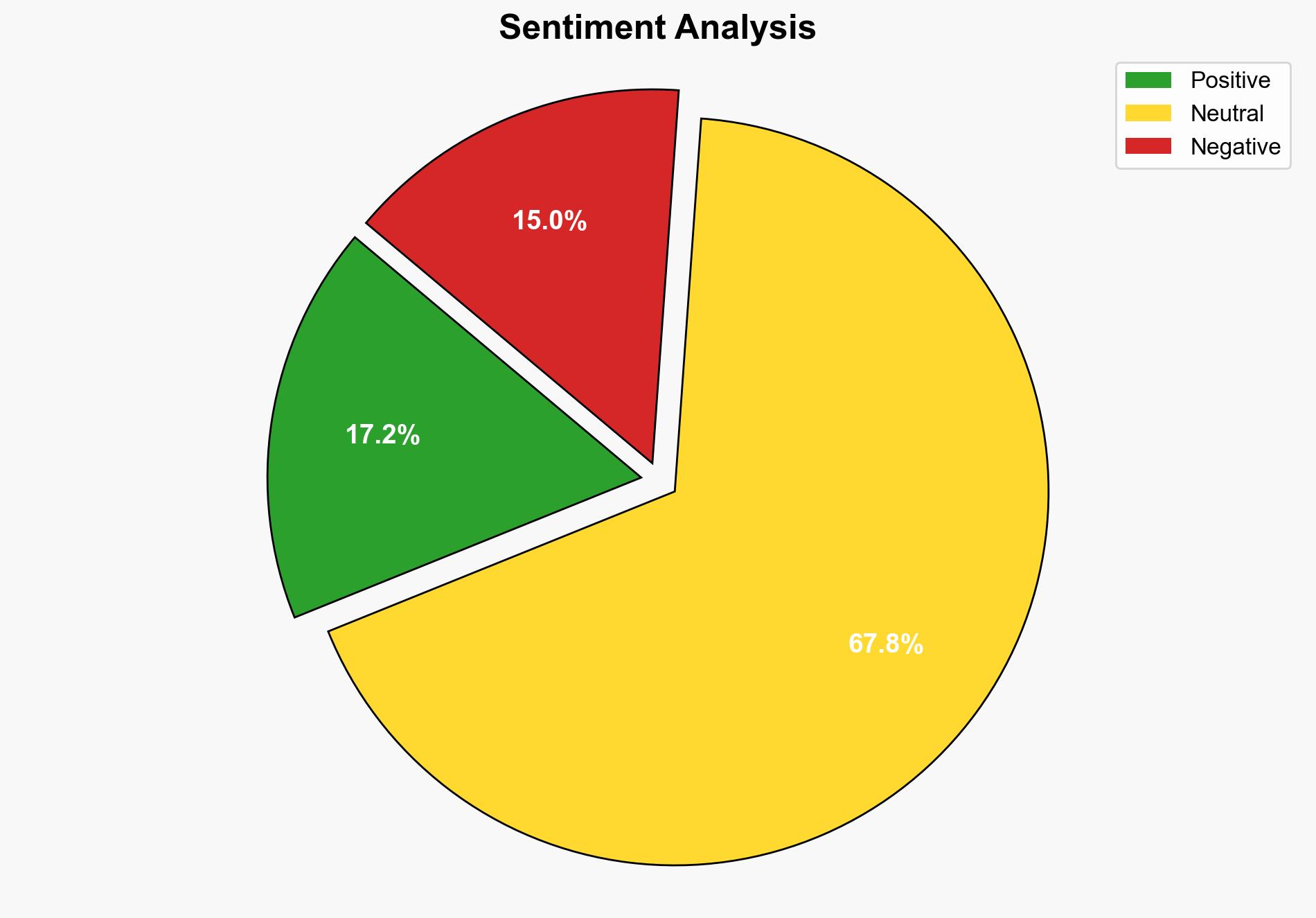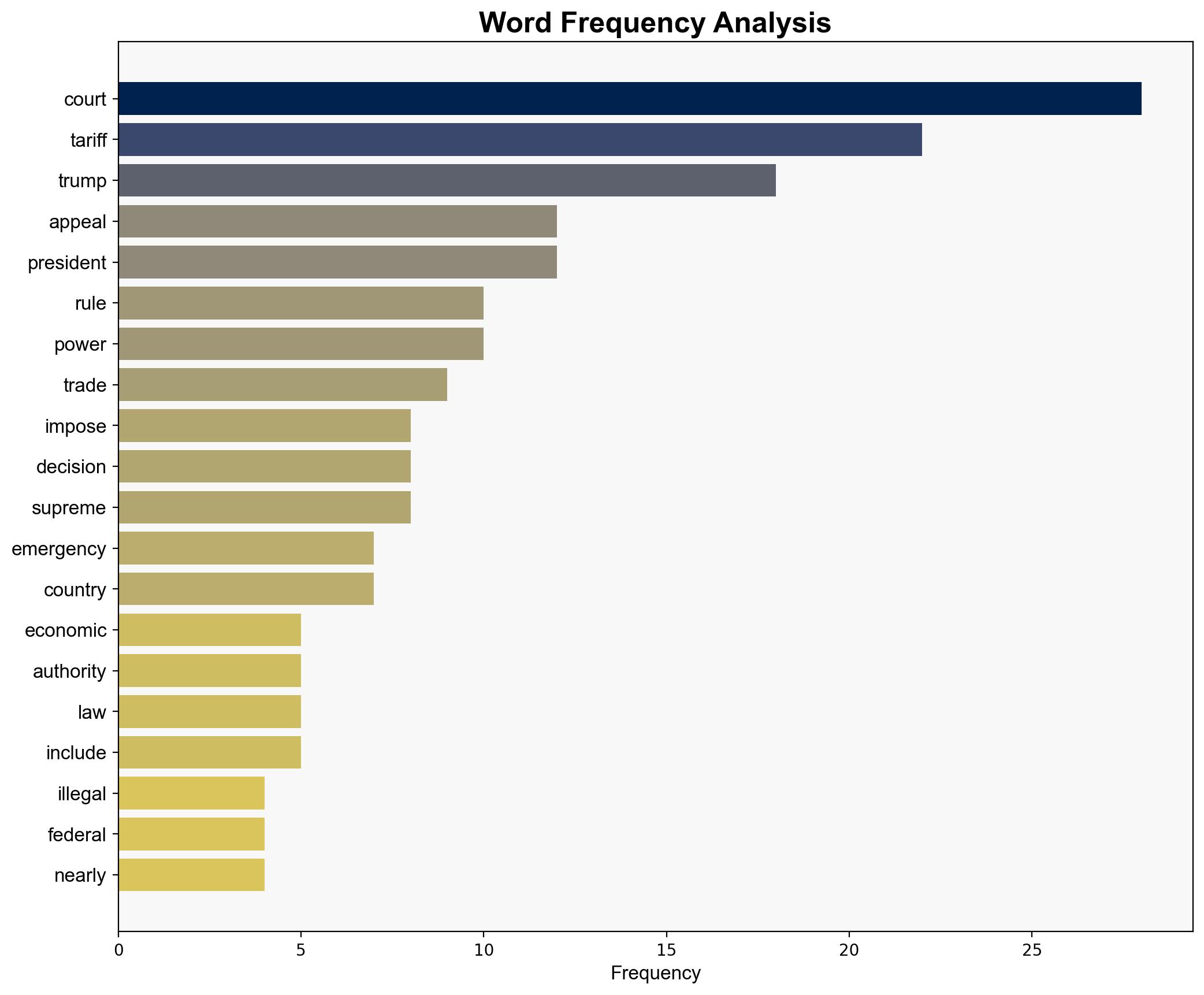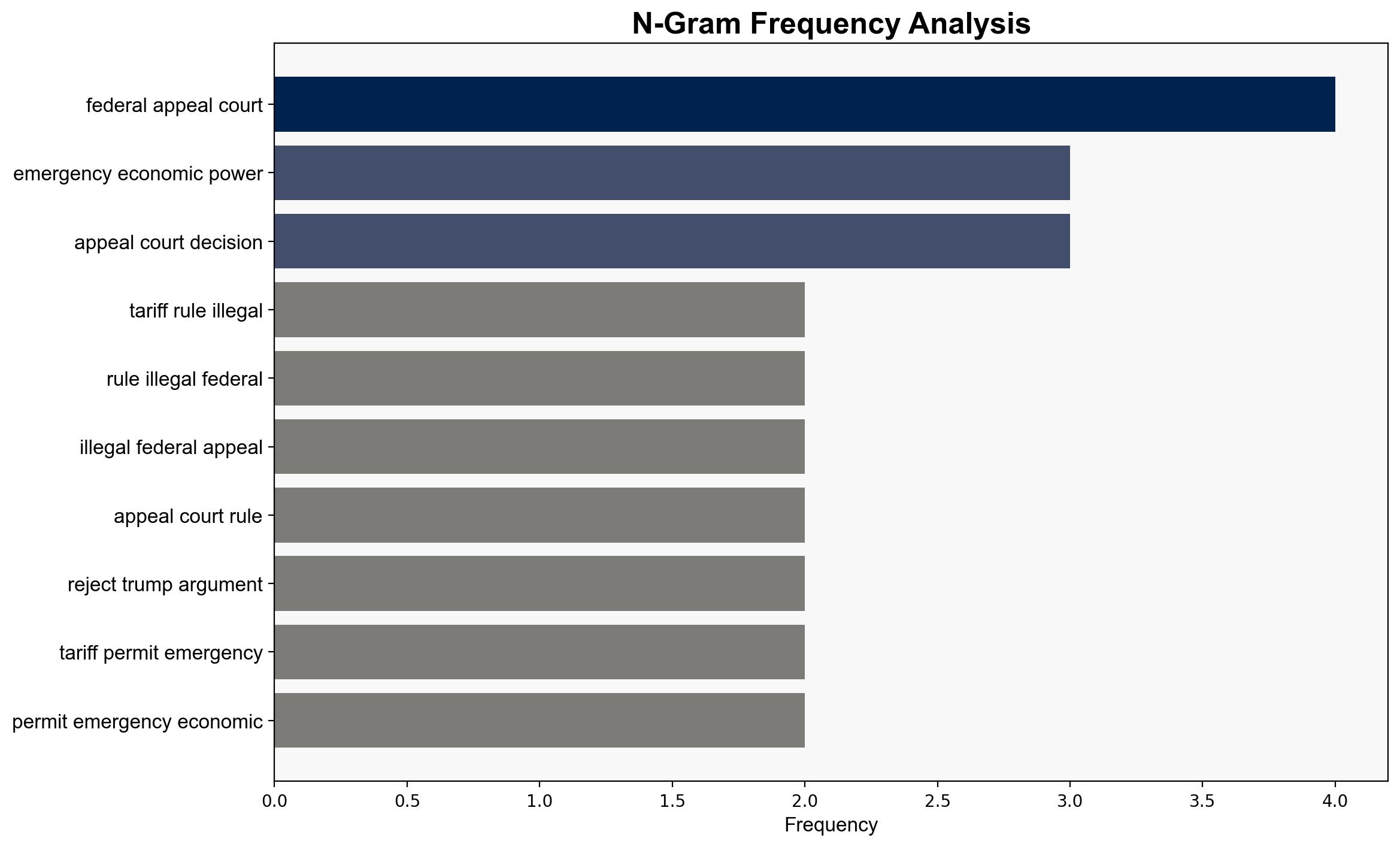What happens next after Trump tariffs ruled illegal – BBC News
Published on: 2025-08-30
Intelligence Report: What happens next after Trump tariffs ruled illegal – BBC News
1. BLUF (Bottom Line Up Front)
The ruling against Trump’s tariffs represents a significant legal and economic development. The most supported hypothesis is that the Supreme Court will uphold the appellate court’s decision, limiting executive power under the International Emergency Economic Powers Act (IEEPA). This analysis is supported by historical judicial restraint regarding executive overreach. Confidence level: Moderate. Recommended action: Monitor Supreme Court proceedings and prepare for potential shifts in international trade policies.
2. Competing Hypotheses
Hypothesis 1: The Supreme Court will uphold the appellate court’s decision, reinforcing the limits on presidential power to impose tariffs under IEEPA. This hypothesis is supported by the trend of judicial checks on executive overreach and the specific legal arguments presented in the appellate court’s decision.
Hypothesis 2: The Supreme Court will overturn the appellate court’s decision, allowing broader presidential authority under IEEPA to impose tariffs. This could be influenced by the current conservative majority in the Supreme Court, which may align with Trump’s interpretation of executive powers.
Using the Analysis of Competing Hypotheses (ACH) 2.0, Hypothesis 1 is better supported due to the legal precedent and the judiciary’s historical role in maintaining checks and balances.
3. Key Assumptions and Red Flags
Assumptions include the belief that the Supreme Court will prioritize legal precedent over political considerations. A red flag is the potential bias of the Supreme Court’s conservative majority, which could sway the decision. Additionally, the assumption that economic impacts will be a significant consideration may not hold if political motivations dominate.
4. Implications and Strategic Risks
If the Supreme Court upholds the ruling, it could lead to a recalibration of U.S. trade policies and a potential reduction in executive power. This may stabilize international markets but could also embolden Congress to assert more control over trade policy. Conversely, if the ruling is overturned, it could lead to increased executive actions in trade, potentially destabilizing global markets and straining international relations.
5. Recommendations and Outlook
- Monitor Supreme Court proceedings closely for indications of judicial leanings.
- Engage with international trade partners to prepare for potential changes in U.S. trade policy.
- Scenario-based projections:
- Best Case: Supreme Court upholds the ruling, leading to stable trade relations and market confidence.
- Worst Case: Overturning the ruling leads to erratic trade policies and international market instability.
- Most Likely: The decision is upheld, with gradual adjustments in trade policy and executive power.
6. Key Individuals and Entities
Donald Trump, Supreme Court Justices, Dr. Linda Yueh (economist)
7. Thematic Tags
national security threats, international trade, judicial decisions, executive power





